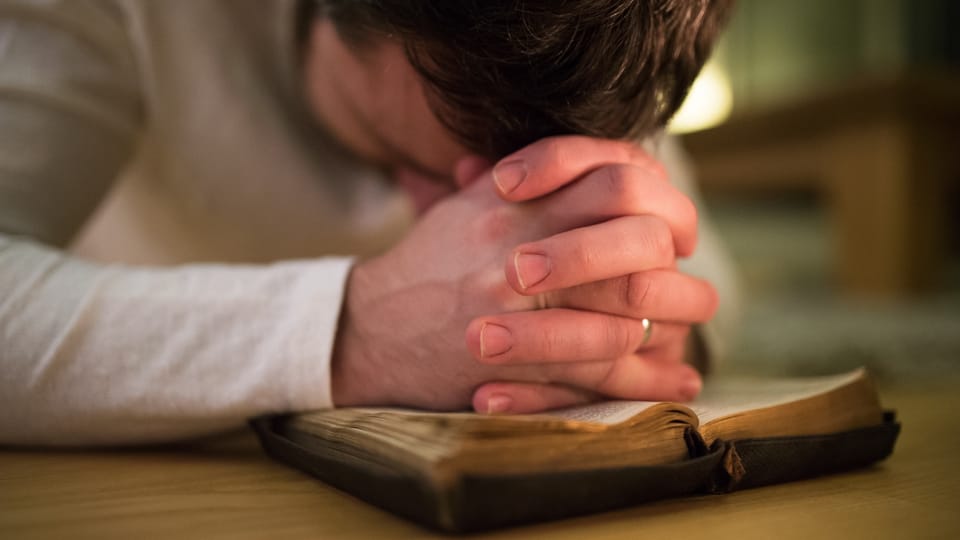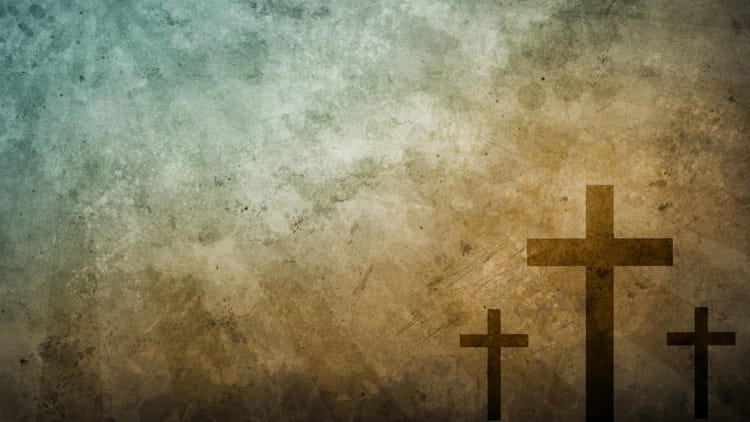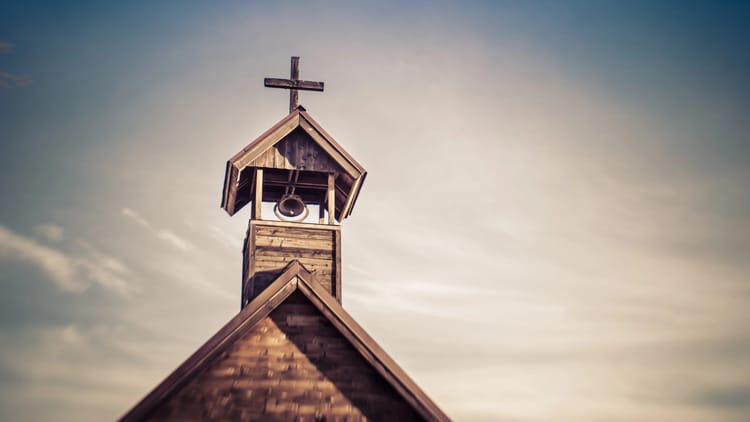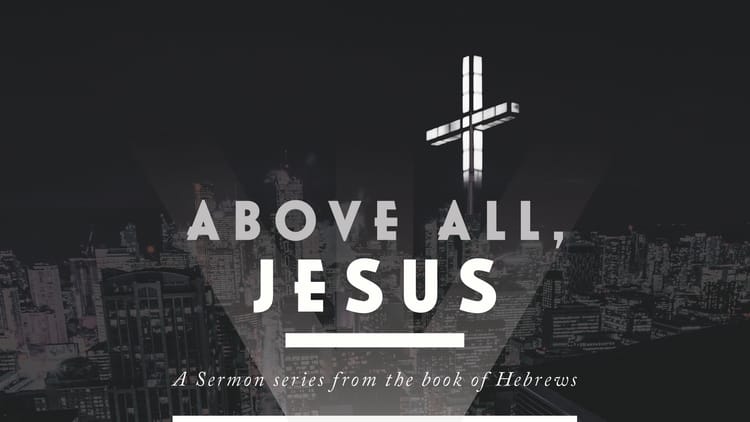Don’t Lose Your Wonder (Hebrews 8)

Big Idea: Wonder again at Jesus, because the more we wonder at Jesus and his salvation, the less we’ll be tempted to wander from him.
John Piper has said that books don’t change your life; paragraphs do. I agree, but I’ll go farther and say that even sentences can change your life. One such sentence is this one by Trevin Wax: “The church faces her biggest challenge not when new errors start to win but when old truths no longer wow.”
There is so much wisdom in that one sentence. Our greatest challenge is not that we deny the truth but that we become bored with the truth. Wax continues:
R. R. Tolkien once said that the most regrettable feature of human nature is how quickly we become unsatisfied with the good. We receive good gifts from God and then grow bored with blessings. Spiritual dullness. Blurry vision. Hardness of heart. This is the challenge for the church.
What happens when we lose our wonder? We start to drift from what should capture our attention. We start to long for lesser things. This is one of the greatest spiritual dangers that we will ever face.
We’re in the middle of a series in the book of Hebrews. Hebrews is written to address a problem: people who had put their faith in Jesus began to drift back to Judaism. And the author writes this letter to focus their attention back on Jesus and to not settle for anything else.
The writer has been focused on the Old Testament sacrificial system. It’s because this is the thing that was drawing them away from Jesus. He wants to show them that Jesus is so much better than the Old Testament system of priests and sacrifices. The thing that made it so alluring is that it was close to the core of their faith without being at the core of their faith. It was meant to point to Jesus, but it wasn’t the main point. The main point is Jesus, but they were tempted by the thing that was meant to point to Jesus rather than focusing on Jesus himself.
What is it that might draw your attention away from Jesus? It’s probably not the Old Testament system of priests and sacrifices. But it’s something. And it may be especially dangerous if it is something that is meant to point us to Jesus but that isn’t the point. Beware of any substitute for Jesus, especially religious ones. When we lose our wonder at Jesus, we start to settle for secondary things, and those secondary things actually begin to threaten our souls. To paraphrase Trevin Wax, we face our biggest challenge not when new errors start to win, but when we lose our wonder at Jesus.
Let’s follow the author’s argument in this passage. The author has one agenda: to help us realize that Jesus is so much better than the Old Testament sacrificial system. He is a better priest of a better covenant. And so he gives us three things about Jesus that should cause us to regain our wonder.
Here’s the first:
Wonder at where Jesus is as he represents you (8:1-2).
You may have visited Jerusalem. It’s pretty amazing. It’s amazing to stand at the site of the temple in the Old City of Jerusalem and think of everything that happened there. Abraham stood there with Isaac his son. David stood there. Solomon stood there. Jesus stood there. High priests entered into the presence of God in the Holy of Holies in that location. For a thousand years, sacrifices were offered at that place. It’s amazing.
If standing at the location of the temple is amazing, there’s something that should fill us with even more wonder. Verses 1 and 2 tell us:
Now the point in what we are saying is this: we have such a high priest, one who is seated at the right hand of the throne of the Majesty in heaven, a minister in the holy places, in the true tent that the Lord set up, not man.
The author is saying: if you think that the high priest serving in the temple is amazing, you should think about where Jesus, your great high priest, is serving. The temple was only a shadow of the greater reality that we now get to experience. Our great high priest is not in some earthbound building. Our great high priest is in the very presence of God himself. Not only that, but he is sitting where no high priest has ever sat before: he’s seated at the right hand of the throne of the Majesty in heaven. Jesus is exalted and is sitting on heaven’s throne, and he’s there representing you before the God of this universe. Jesus does his work of mediation for you in the presence of God himself.
The earthly tent was only a copy of the heavenly tabernacle. The high priest could only enter the Holy of Holies once a year to make atonement for the people. But Jesus doesn’t dwell in a copy of the heavenly tabernacle; he dwells in the presence of God himself. It’s not a building that Moses or Solomon or Herod built; Jesus dwells in the true tent that the Lord set up, not man. And he’s not there one day a year. He is there continually in the presence of God representing you.
You have a friend in high places. You have a high priest in the highest of places, on the throne of heaven itself. The One who sits at the Father’s right hand in glory being worshiped and adored by saints and angels is serving you.
The writer is saying: why would you ever settle for earthbound priests in Jerusalem when you can have a high priest in the very presence of God himself? When we start to lose our wonder at that fact, we’ll begin to drift to lesser truths to the peril of our souls. “There are no lapses, no disaffections, no uneven devotion—only a loving constancy of intercession—serving…” (Kent Hughes).
The One who represents you sits on heaven’s throne in the presence of God himself. Your representative could not be better placed to serve you and represent you before the presence of God himself. Don’t settle for anything less than that. Don’t drift to lesser truths or realities. Look to heaven where your Savior is representing you in the very presence of God himself. Don’t lose the wonder of that reality. If you have trusted Jesus, wonder at where Jesus is as he represents you right now.
But that’s not all. There’s a second thing that should bring us wonder.
Wonder at how Jesus is the substance of which everything that came before is a shadow (8:3-5).
I wish we had time to look at the richness of the Old Testament system of priests and sacrifices. It’s full of so much meaning.
- The temple represents the very presence of God among sinful people. Every detail is meant to teach us something about God and how he has made a way for sinful people to come into his presence.
- The Old Testament priesthood represents our need for someone to stand before us and a holy God. The priests represented God to the people and the people to God.
- The sacrificial system, with all of its intricacies, teaches us that the punishment for sin is death, but that God has provided a substitute to die in our place so that we sinful people can stand in the presence of a holy God.
There is so much in the Old Testament system that teaches us things we need to know about God and how to draw near to them.
But the writer says that all of this is just a shadow that points us to Jesus who is the substance to which everything pointed:
For every high priest is appointed to offer gifts and sacrifices; thus it is necessary for this priest also to have something to offer. Now if he were on earth, he would not be a priest at all, since there are priests who offer gifts according to the law. They serve a copy and shadow of the heavenly things. For when Moses was about to erect the tent, he was instructed by God, saying, “See that you make everything according to the pattern that was shown you on the mountain.” (8:3-5)
Verse 5 is key: “They serve as a copy and shadow of heavenly things.” The old covenant temple, priesthood, and sacrificial system “mimics enough of the original to point God’s people to greater, heavenly realities” (George Guthrie). It’s the photocopy of which Jesus is the original. Don’t settle for the shadow; wonder at the reality to which the shadow points. Wonder that Jesus is not in some earthly temple but in the heavenly one. Wonder that Jesus is not some sinful mortal priest but a perfect priest who has conquered death. Wonder that he has not offered the blood of an animal but his own blood for your soul.
You have “the reality and the substance of what on earth is only typical and temporary … Jesus is there in heaven, the true tabernacle where God himself dwells, and it is the goal of his superior ministry to bring us to where he is, near to God in heaven … When we come to Jesus, he brings us to God, to heaven, and to eternal life. He brings us home because he knows the way and has opened it for us” (Richard Phillips). Don’t lose your wonder that you get to enjoy the reality of which everything else before was a shadow.
Wonder where Jesus is as he represents you. Wonder at how Jesus is the substance of which everything before was a shadow. There’s one more thing:
Wonder at the better promises that you’ve been given (8:8-13).
Verses 8 to 12 are one big quotation from Jeremiah 31:31-34. It’s the longest quotation in the New Testament of an Old Testament text. The purpose of this quotation is to describe the ministry of Jesus, and how it’s superior to ministry under the old covenant. Verse 6 says, “But as it is, Christ has obtained a ministry that is as much more excellent than the old as the covenant he mediates is better, since it is enacted on better promises.”
How is the new covenant — the terms of the relationship that God makes with us — better than the old? If you read the Old Testament, you see that the old covenant didn’t bring the desired transformation in the people. But the new covenant is better. It does what is needed.
The quotation from Jeremiah describes four ways that the new covenant is better:
- A new power — “I will put my laws into their minds, and write them on their hearts” (8:10). The new covenant doesn’t just modify our behaviour. It changes us from the inside-out. He doesn’t just write the law on tablets; he writes in our hearts and empowers us to obey him. In the new covenant, his laws are internalized in our hearts.
- A new relationship — “I will be their God, and they shall be my people” (8:10). Verse 9 points to the failure of the old covenant. “For they did not continue in my covenant, and so I showed no concern for them, declares the Lord.” The relationship in the old covenant was marred by the people’s disobedience. But in the new covenant, God has given himself to us and taken us as his own.
- A new community — “And they shall not teach, each one his neighbor and each one his brother, saying, ‘Know the Lord,’ for they shall all know me, from the least of them to the greatest” (8:11). In Israel, there were believers and unbelievers. But God is creating a new community in which everyone knows him from the least to the greatest.
- A better forgiveness — “For I will be merciful toward their iniquities, and I will remember their sins no more” (8:12). Under the old covenant, sins were not fully forgiven, because the blood of bulls and goats could never do the job. Sins were covered until the perfect sacrifice was offered for sin. Under Jesus, that sacrifice has been made, and now our sins have been dealt with finally and fully.
There is no greater salvation that could be offered than what Jesus has given us in the new covenant.
The writer wants us to lift “our eyes from earth to heaven, from our works of weakness to God’s works of power, from man’s enslaving religion to Christ’s liberating salvation” (Phillips). He wants us to wonder again at Jesus, because the more we wonder at Jesus and his salvation, the less we’ll be tempted to wander from him.
And so today I have one application: look at Jesus and marvel at him. Don’t lose your interest in him. Don’t go looking for anything or anyone else, because there is nobody better than him. When you see Jesus and what he has done for you — that he represents you in heaven; that he’s the substance of which everything else was a shadow; that he’s given you even greater promises — you’ll never want to look anywhere else.





